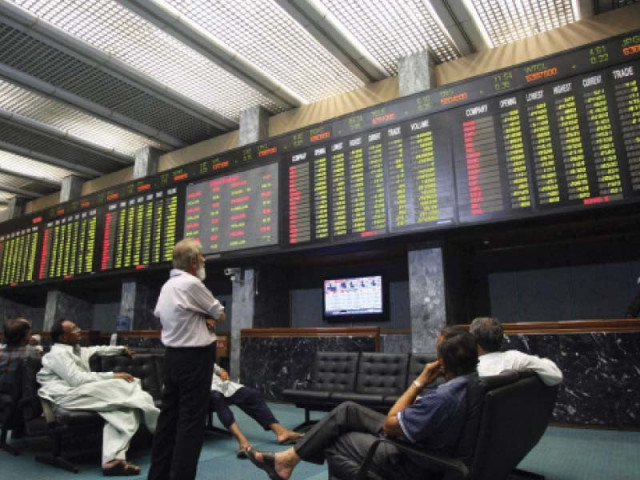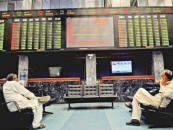Commercial bank lending rate spikes
Agreement with IMF on strict terms is feared to hammer stock market

The aggressive tightening of monetary policy and the acceptance of stringent conditions for the resumption of International Monetary Fund (IMF) loan programme have badly jolted the Pakistan Stock Exchange (PSX) and a sharp drop in share prices indicates that the bourse may feel the aftershocks for some time.
The lending rate of commercial banks has spiked dramatically in the backdrop of the aggressive interest rate hike aimed at creating a balance between inflation and economic growth. The adjustment in markup rates, however, has increased the cost of borrowing for many businesses listed at the PSX and has adversely impacted their profit outlook.
Besides, Pakistan’s agreement with the IMF to cut its development budget significantly, withdraw tax exemptions worth Rs300 billion and increase petroleum product and power prices in phases is feared to hammer stock prices further from time to time.
“Pakistan’s (commercial bank) lending rates rise further as one-year Kibor (Karachi Inter-bank Offered Rate) has crossed 11% after 19 months,” Topline Securities CEO Mohammad Sohail wrote on his Twitter handle on Tuesday.
“(It is) probably one of the toughest IMF programmes with so many prior actions and more conditions likely for monetary and fiscal tightening.”
Earlier on Monday, the benchmark six-month Kibor rose to 10.03% from 9.16% after the central bank increased the policy rate by 1.5 percentage point to 8.75% on Friday.
“The developments (IMF conditions and interest rate hike) are feared to depress overall demand in the economy and keep sentiment negative in the stock market,” KASB Securities Head of Research Yousuf Rahman said while talking to The Express Tribune.
“I do not find upside triggers. At present, investors are seemingly not willing to enter the PSX.”
Banks and companies listed at the PSX expect the benchmark interest rate to rise to 10% in the next six months from the current 8.75%. The return of upturn cycle in the benchmark rate might keep business sentiment negative in the stock market, he said.
Sector-wise impact
The recent hike in the benchmark interest rate and banks’ lending rate is a positive development for banks. The rate hike would contribute to the increase in net interest income of banks and support them in posting a higher after-tax profit, he said.
However, those businesses which heavily rely on bank borrowing for their day-to-day operations and long-term investment will bear the brunt of the rate hike. Their cost of doing business is set to go up, which will hit their net profit.
“Cement and steel are the two most leveraged (depending on bank borrowing) sectors. Their profit margins may fall under the axe,” Rahman said.
Textile sector also heavily relies on bank borrowing. However, it receives financing at subsidised rates since most of the firms play a leading role in fetching export earnings. “Hence, the rate hike is a neutral development for the textile sector,” he said.
The rate hike would not directly hit car manufacturers, but the drop in demand for vehicles would impact them. They have huge cash reserves in hand.
The rate hike decision will also be positive for the car manufacturers.
“They earn around 30-40% of their total income from the interest on cash deposits in banks instead of selling cars, hence the rate hike is positive for them in the short run,” he said.
However, the rate increase, along with other measures taken to cut car financing, would reduce the demand for cars and impact the earnings of car companies negatively, he said.
The decision stands mixed for the fertiliser manufacturers.
Oil and gas exploration companies hold cash reserves, therefore their earnings would be positively impacted.
However, oil marketing companies, mainly Pakistan State Oil (PSO), function mostly through bank financing. Other oil marketing companies also manage debt, but not as huge has the state-owned company does.
Published in The Express Tribune, November 24th, 2021.
Like Business on Facebook, follow @TribuneBiz on Twitter to stay informed and join in the conversation.


















COMMENTS
Comments are moderated and generally will be posted if they are on-topic and not abusive.
For more information, please see our Comments FAQ